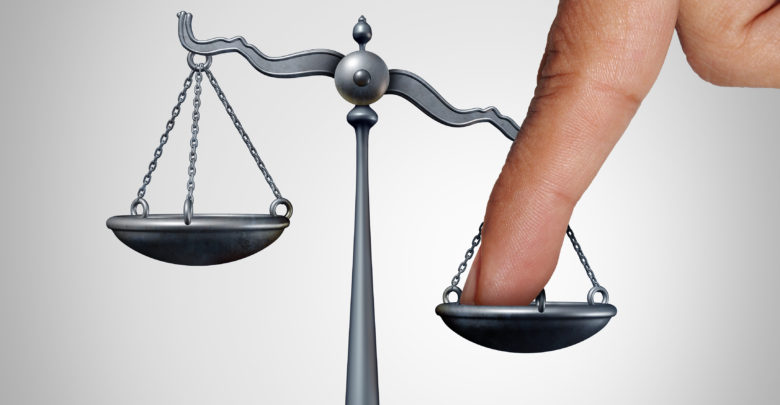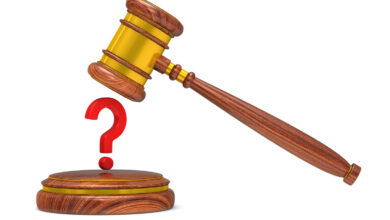Jeffrey Epstein’s O.J. Defense

Criminal trials are often described as a search for the truth. But nothing could be further from the, well, truth.
In our adversary system of justice, too much searching for truth is unethical.
As a lawyer, you may know that your client is guilty. By that I mean lower-case “guilty,” meaning that your client did, in fact, commit the crime with which he/she is charged. Not upper-case Guilty, meaning prosecutors have proved guilt in court beyond a reasonable doubt. Just guilty. We all know what guilty means.
How might you know? Your client may have told you. You may have seen a videotape. Whatever. You know.
But your ability to defend your client is not going to be excessively burdened by your knowledge of his/her guilt. True, every U.S. jurisdiction prohibits you from knowingly offering false testimony in a criminal trial. But in deciding whether the lawyer “knows” evidence is false, the lawyer “should resolve doubts about the veracity of testimony or other evidence in favor of the client.”
And, having resolved any doubts in favor of the client, a lawyer is then free to offer testimony that he/she believes (but does not “know”) is false.
Ponder for a moment the breadth of that legal loophole.
How would a lawyer defending, say, O.J. Simpson, know that he murdered his wife? The lawyer wasn’t there. There’s no witness or videotape of the crime. Simpson didn’t confess to his lawyers (at least as far as we know).
But Simpson’s lawyers weren’t morons, so they undoubtedly believed he committed the crime. The motive (jealousy and possessiveness) was indisputable. Simpson’s anger and aggression toward his wife were caught on tape, and were not even contested. The opportunity and the timeline (maybe the only hour in Simpson’s adult life that he couldn’t account for with corroborating witnesses) pointed toward guilt. The blood proved it. The glove proved it. The shoes proved it. The testimony of his lodger, Kato Kaelin, proved it. Virtually every piece of clothing Simpson was wearing that night proved it.
But still, the lawyers could rationalize that they didn’t know Simpson committed the crime. So they were free to make up an uncorroborated alternative scenario, free to destroy witnesses who they knew were telling the truth, free to introduce junk science expert witnesses, free to attack the police and the prosecutors, and free to play the race card.
And even if the lawyers had, in fact, known that Simpson was guilty, say because he told them so, they would still have been permitted, even required, to try to sell the jury on reasonable doubt by destroying honest witnesses, attacking the police and prosecutors, suggesting alternative scenarios, and the like.
They would only be prohibited from knowingly offering false testimony, not from discrediting knowingly true testimony offered by the prosecutors.
If you still think that a court is where lawyers go to search for the truth, I’d like to offer an alternative definition:
A courtroom is a place where people go to lie.
And distract. And divert. And appeal to prejudices. And destroy anyone whose testimony contradicts their preferred narrative. And intimidate their adversaries.
Which brings us to Jeffrey Epstein.
Take a look at the chilling tale of how Jeffrey Epstein’s lawyers “negotiated” the deal of the century for a serial child molester. According to reporting in the Washington Post, just over a decade ago “the cops thought they’d handed prosecutors the easiest case ever, a slam dunk.” It was a “startling and sickening tale of an arrogant millionaire who they say systematically recruited and sexually molested barely pubescent girls – dozens of them”
But federal prosecutor Alex Acosta, the man whose job it was to hold Epstein accountable for his sexual abuse of minor girls, caved to pressure applied by a team of high-powered legal all-stars, reminiscent (and to an extent duplicative) of the team that represented O.J. Simpson.
Epstein’s lawyers exerted pressure on Acosta “through political, financial and emotional means.” According to accounts revealed in the Post article, they accused the Miami prosecutors of bias and misconduct, put political pressure on top officials in Washington in order to get a “better deal,” minimized Epstein’s predatory conduct (“just massages that turned into a little more than massages”), stole trash from victims’ families, approached victims with false claims that they were police officers, staked out houses, investigated individual prosecutors and their families, threatened to publish books that would destroy Acosta’s career, and more.
And it worked. Even though none of this disproved or diminished any part of the horrifying story of Epstein’s sexual misconduct set out in an 82-page prosecution memo and a 53-page indictment.
What about the young victims?
According to an attorney who represented three of the teenage girls, “They figured the fix was in, and they were right.”
But it might be misleading to call it a “fix.” Arguably, nothing Epstein’s (or O.J.’s) lawyers did was a violation of the code of professional responsibility under which attorneys operate. It may have been lower-case unethical, but it wasn’t upper-case Unethical, as defined by the standards of legal ethics.
In law, as in politics, the real scandal isn’t what’s unethical.
It’s what’s “Ethical.”




